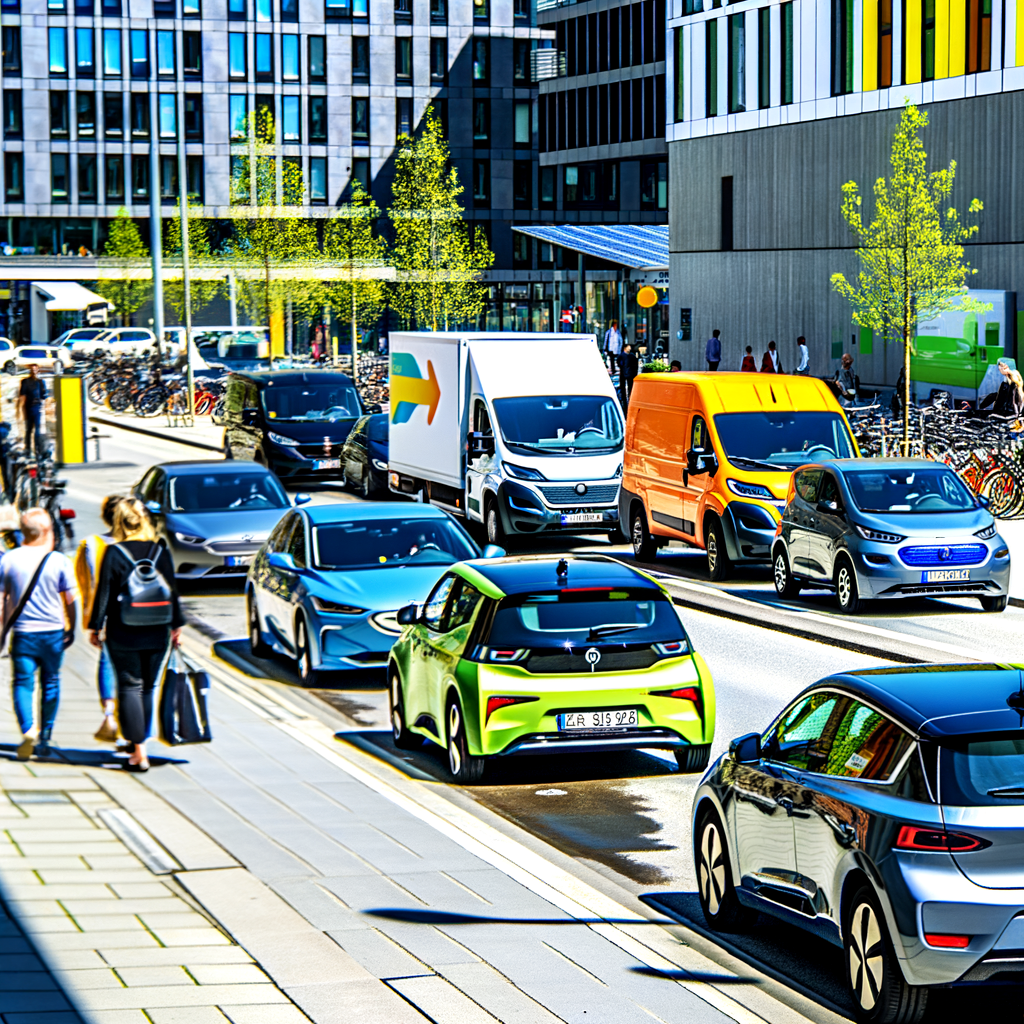Electric Vehicle Uptake Stalls as Drivers Seek Government Action
As the world continues to grapple with the urgent need to combat climate change, electric vehicles (EVs) have been touted as a significant part of the solution. However, recent trends indicate that the uptake of electric vehicles in the UK is stalling, with drivers demanding more substantial action from the government to support this transition. This article dives into the current state of EV adoption, the challenges consumers and businesses face, and what measures can be taken to expedite this essential shift.
The Current Landscape of Electric Vehicle Adoption
Electric vehicles have been gaining traction globally, with several countries setting ambitious targets to phase out internal combustion engine vehicles in favor of more eco-friendly alternatives. In the UK, the government has pledged to ban the sale of new petrol and diesel cars by 2030. Despite these commitments, the uptake of electric vehicles has hit a plateau.
- Market Trends: Recent data shows that the growth rate of EV sales has slowed down, and the market penetration is not as high as anticipated.
- Consumer Concerns: Despite the environmental benefits, consumers remain hesitant due to a range of issues, including costs, charging infrastructure, and range anxiety.
- Business Perspective: Fleet operators and businesses face challenges such as the availability of suitable electric commercial vehicles and the need for more extensive charging networks.
Cost Barriers
One of the most significant barriers to widespread adoption is the high upfront cost of electric vehicles. While the total cost of ownership over the vehicle’s lifetime can be lower for EVs due to reduced fuel and maintenance costs, the initial investment remains a deterrent for many consumers. To address this, the government and manufacturers must offer more incentives and subsidies to make EVs financially viable for a broader audience.
Charging Infrastructure
The availability and accessibility of charging infrastructure play a pivotal role in the decision to switch to an electric vehicle. Currently, the UK’s charging network is not yet at a stage where it can instill confidence in potential EV buyers. The challenges include:
- Insufficient Charging Points: Many areas, particularly rural locations, lack adequate public charging stations.
- Maintenance Issues: Existing charging points often suffer from reliability issues, with many being out of service at any given time.
- High Charging Costs: The cost of using public charging stations can be prohibitively high, negating some of the financial benefits of owning an EV.
Government Role in Accelerating EV Adoption
The demand for government action is loud and clear. If the UK is to meet its ambitious environmental goals, a more proactive approach is necessary. Here’s what the government can do:
Increase Financial Incentives
More generous grants and subsidies can significantly reduce the initial cost barrier. Additionally, tax incentives and reduced registration fees can further make EVs more attractive. The government should also consider support for businesses transitioning their fleets to electric vehicles.
Expand Charging Infrastructure
Investing in a robust and widespread charging network is crucial. This includes:
- Funding for Public Charging Stations: Increased investment to ensure a comprehensive network of reliable and affordable charging points across all regions, including rural areas.
- Incentives for Private Installations: Encouraging homeowners and businesses to install charging stations through grants and tax rebates.
- Standardization and Interoperability: Ensuring that all charging points are easy to use and compatible with different vehicle models.
Policy and Regulation
Strong policy frameworks and regulations can drive the transition. This includes:
- Phasing Out Petrol/Diesel Vehicles: Setting clear and enforceable timelines for the phase-out of internal combustion engine vehicles.
- Mandates for Manufacturers: Requiring automakers to produce a certain percentage of electric vehicles and supporting R&D for better technologies.
- Green Investment: Encouraging investment in renewable energy sources to ensure that the increased electricity demand from EVs is sustainably met.
Conclusion
The stalling of electric vehicle uptake in the UK highlights the need for more decisive government action. By addressing the cost barriers, expanding charging infrastructure, and implementing strong policies, the UK can accelerate its transition to a greener, more sustainable transport system. The future of our planet depends on making these changes now, ensuring that both consumers and businesses are on board with this critical shift.
The call to action is clear: the government must step up, and collectively, we must embrace the change for a better, cleaner future.



